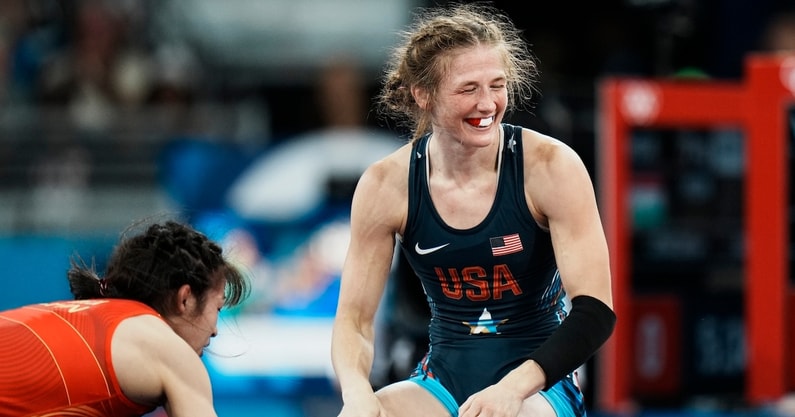The recent achievement of USA's Hildebrandt in clinching the gold medal in wrestling has not only underscored her individual prowess but also highlighted the growing prominence of women's wrestling on the global stage. This victory is emblematic of years of dedication, training, and resilience that athletes like Hildebrandt have demonstrated throughout their careers. Her triumph serves as a testament to the evolving landscape of sports where women are increasingly recognized for their athletic capabilities, breaking stereotypes and paving the way for future generations.
Hildebrandt's journey to gold was marked by numerous challenges, including intense competition from formidable opponents. The mental fortitude required to excel in such a physically demanding sport cannot be overstated. Athletes must navigate not only the rigors of training but also psychological pressures that accompany high-stakes competitions. Hildebrandt’s ability to perform under pressure exemplifies her commitment and strategic acumen, which are critical components for success in wrestling.
Hildebrandt’s morning began with what she said was “the smoothest weight cut” of her life. She went to bed Tuesday night needing to shed half a kilogram to make weight for the 50-kilogram Olympic title bout and woke up four-tenths of a kilo lighter.
A quick sweat and she was off to the scale for weigh-ins.
And that’s where things took a bizarre turn.
Her scheduled opponent — Vinesh Phogat of India — was a no-show at weigh-ins. A day after making international headlines for pulling off one of the biggest upsets in Olympic wrestling history when she handed Japan’s Yui Susaki her first career international loss, Phogat was disqualified from the tournament for not making weight.
Susaki eventually earned a bronze medal with a 10-0 win over Oksana Livach of Ukraine.
Hildebrandt, a bronze medalist in Tokyo, said her most unusual wrestling experience before Wednesday was a power outage that caused a championship match to start 30 minutes late.
"So this tops that," she said. "But yeah, that was definitely the most insane thing. I don't even know. Craziness. At a loss of words for once."
United World Wrestling's decision brought calls to add weight classes and shined a light on the dangers of weight-cutting.
Dinshaw Pardiwala, chief medical officer for India's team, said in a statement that wrestlers usually participate in a weight category below their natural weight because it gives them the advantage of facing opponents who naturally are smaller. Wrestlers often regain weight quickly after weigh-ins.
Cutting weight is a grimly necessary part of wrestling. Virtually all wrestlers do it, building it into their lifestyle. Hildebrandt said after winning her gold that she had to cut some weight Wednesday morning—“just get a little sweat in”—and does so routinely.
Read more
UN health agency: mpox outbreak in Africa May be a global emergency NASA Says Boeing Starliner Astronauts will Fly Home on SpaceX in February 2025Sarah H
Also on site :
- Jordan Bianchi reveals ‘complicated’ hurdles concerning NASCAR Cup Series return to Rockingham
- Celebrity Big Brother star reveals she’s engaged after very romantic proposal in the Maldives
- Here’s How to Pray the Official Novena to Soon-to-Be Saint Carlo Acutis

